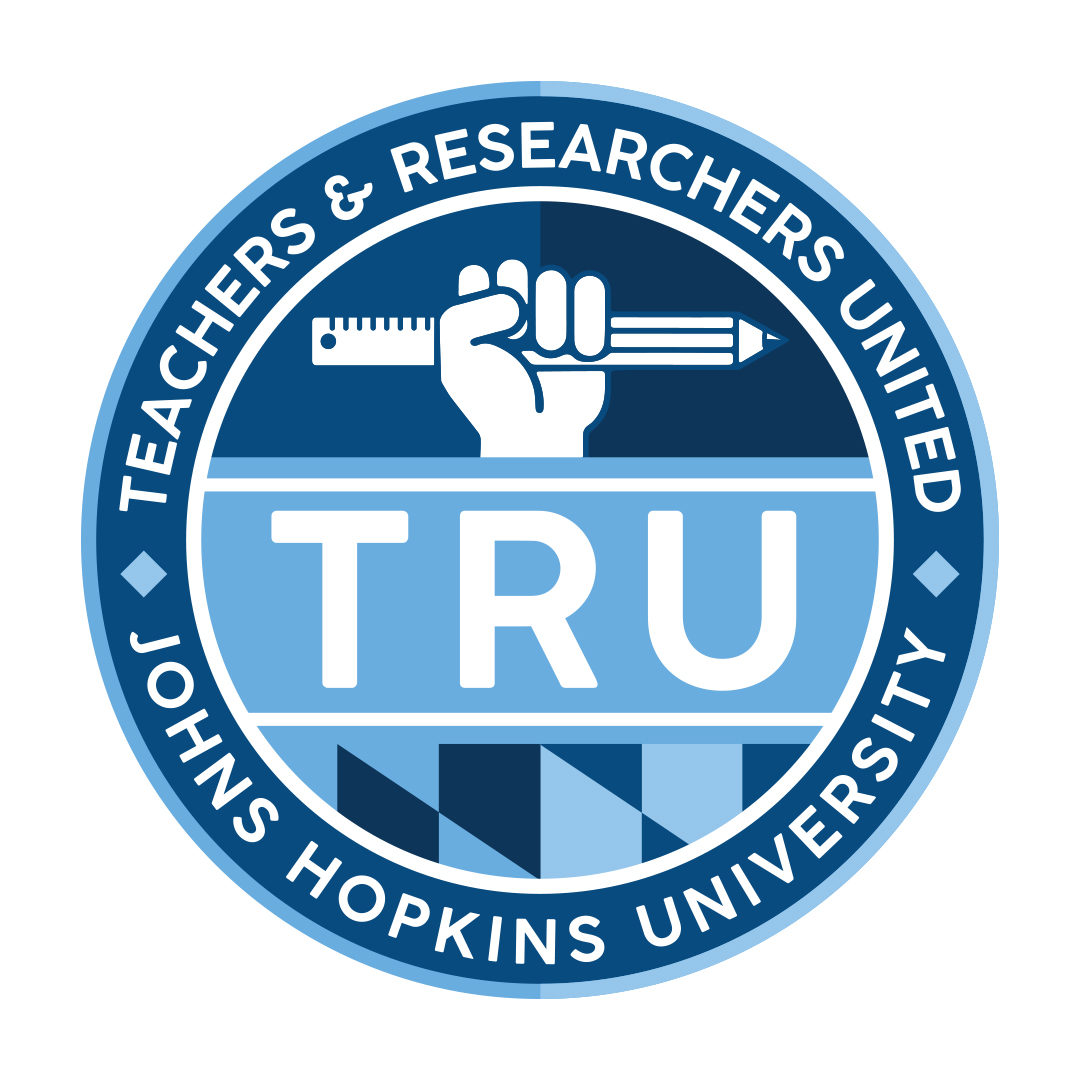You Have A Right to Unionize
“You have the right to organize a union to negotiate with your employer over your terms and conditions of employment. This includes your right to distribute union literature, wear union buttons, t-shirts, or other insignia (except in unusual “special circumstances”), solicit coworkers to sign union authorization cards, and discuss the union with coworkers. Supervisors and managers cannot spy on you (or make it appear that they are doing so), coercively question you, threaten you or bribe you regarding your union activity or the union activities of your co-workers. You can’t be fired, disciplined, demoted, or penalized in any way for engaging in these activities.”
– The National Labor Relations Board
What Does this Mean as a Grad Student?
- Your advisor, staff, or Hopkins administration CANNOT prohibit you from organizing or supporting TRU!
- This legal right applies equally to both domestic and international students. For more information of particular relevance for international students, please see TRU’s International Student Working Group page.
- Nonetheless, the threat of retaliation can be a real fear. This is part of the point of unionizing: if we stand together, individual workers can be protected by the support of their peers.
- If your advisor, or Hopkins staff, threaten your funding, degree progress, or academic standing in retaliation for your support of TRU, they are violating federal law. Contact us if this occurs! You can learn more about illegal retaliation from the US Equal Employment and Opportunity Commission, and report illegal union-busting activity when you see it.
- You have a right to safe, healthy, and fair working conditions. Many employers, sometimes Hopkins, violate these fundamental rights. This includes the right to a workplace free of recognized safety hazards, the right to compensation for injury, and the right to a workplace free of age, ethnicity/race, gender, religious, or sexual discrimination.
- You cannot be assigned to more difficult work tasks or given an increased workload in response, or retaliation to, union organizing; nor can you be removed from your projects or thesis work. This constitutes an unfair labor practice, and an NLRB investigation can be conducted.
